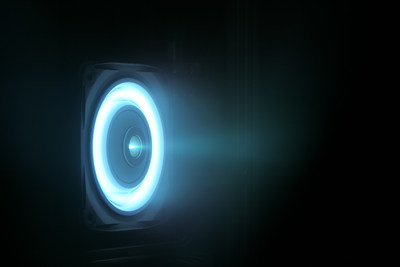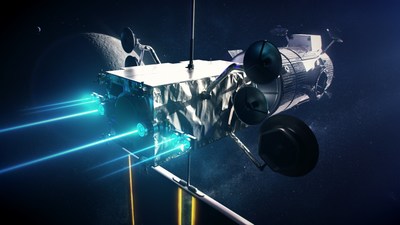Maxar and Busek Thruster System for NASA Lunar Gateway Passes Critical Milestone
Busek Co. and Maxar Technologies (NYSE: MAXR) announced the successful completion of a hot fire test for the 6-kilowatt solar electric propulsion (SEP) subsystem of NASA's Power and Propulsion Element (PPE) for the lunar Gateway. This system is 30% more powerful than previous SEP systems and includes Maxar's control electronics and four Busek BHT-6000 thrusters. The PPE aims to support NASA's Artemis program and future missions to Mars. Maxar plans to move forward with the spacecraft's Preliminary Design Review later in the year.
- Successful completion of hot fire test for SEP subsystem, validating all major elements.
- SEP system is 30% more powerful than previous systems.
- Supports NASA's Artemis program and future Mars missions.
- None.
Insights
Analyzing...
NATICK, Mass., March 18, 2021 /PRNewswire/ -- Busek Co., a developer of high-performance electric propulsion technology for space applications, and Maxar Technologies (NYSE: MAXR) (TSX: MAXR), a trusted partner and innovator in Earth intelligence and Space Infrastructure, confirmed today the successful completion of an end-to-end hot fire test campaign validating all major elements of the 6-kilowatt solar electric propulsion (SEP) subsystem for the Power and Propulsion Element (PPE) of NASA's Gateway in lunar orbit.
The electric propulsion subsystem for the PPE spacecraft features Maxar-built high-power control electronics (PPU-6000), a Moog xenon feed system, and four Busek-built BHT-6000 Hall effect thrusters. Together, this system is 30 percent more powerful than any SEP system flown by these companies. Busek's thrusters will help enable highly efficient electric orbit-raising, station keeping, and maneuvering for Gateway.
"Busek's BHT-6000 electric thrusters offer high-power capabilities at a competitive price point and are a great fit for both our near-Earth and deep space programs," said Robert Curbeam, Senior Vice President of Space Capture at Maxar. "The SEP systems we are evolving for PPE are a fantastic example of innovative commercial technology with great flight heritage being leveraged for NASA programs. We continue to make steady progress on the PPE, with the next major milestone being the spacecraft Preliminary Design Review, which is targeted for later this year."
The PPE will provide power, maneuvering, attitude control and communications systems for the lunar orbiting outpost. Gateway is a foundational part of NASA's Artemis program, which aims to land the first woman and next man on the Moon and enable future crewed missions to Mars. The PPE is managed by NASA's Glenn Research Center in Cleveland, Ohio and Maxar is working on the program from its facilities in Palo Alto and San Jose, California.
"This will be the first time a crewed platform leverages electric propulsion technology, and Busek is extremely proud to provide next-generation Hall thrusters for the Power and Propulsion Element. We applaud NASA's commercial procurement approach to PPE, and Maxar's shared vision for the BHT-6000. Busek's participation in the historic Artemis program is uniquely demanding and extremely rewarding for the entire team," said Vlad Hruby, President and Founder of Busek.
About Busek Co. Inc.
Busek is a US leader in the development and manufacture of high-performance in-space thrusters, sensors, and subsystems. From technology pathfinders to turnkey systems for satellite constellations, the firm's products provide thrust for a range of challenging government and commercial missions. Busek's broad technology portfolio, experience across multiple space propulsion disciplines, and unique manufacturing, test, and flight expertise, enables it to provide unbiased solutions to bet fit customer needs.
![]() View original content to download multimedia:http://www.prnewswire.com/news-releases/maxar-and-busek-thruster-system-for-nasa-lunar-gateway-passes-critical-milestone-301250199.html
View original content to download multimedia:http://www.prnewswire.com/news-releases/maxar-and-busek-thruster-system-for-nasa-lunar-gateway-passes-critical-milestone-301250199.html
SOURCE Busek Co. Inc.









